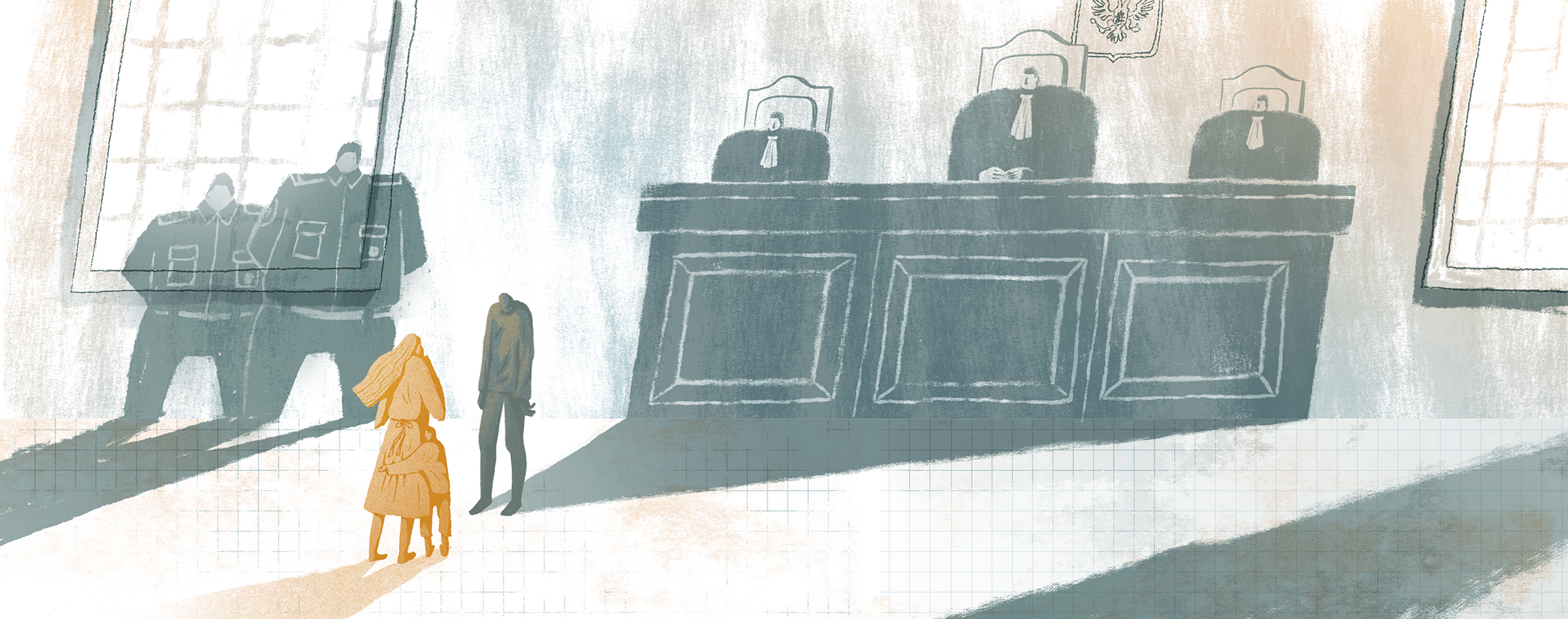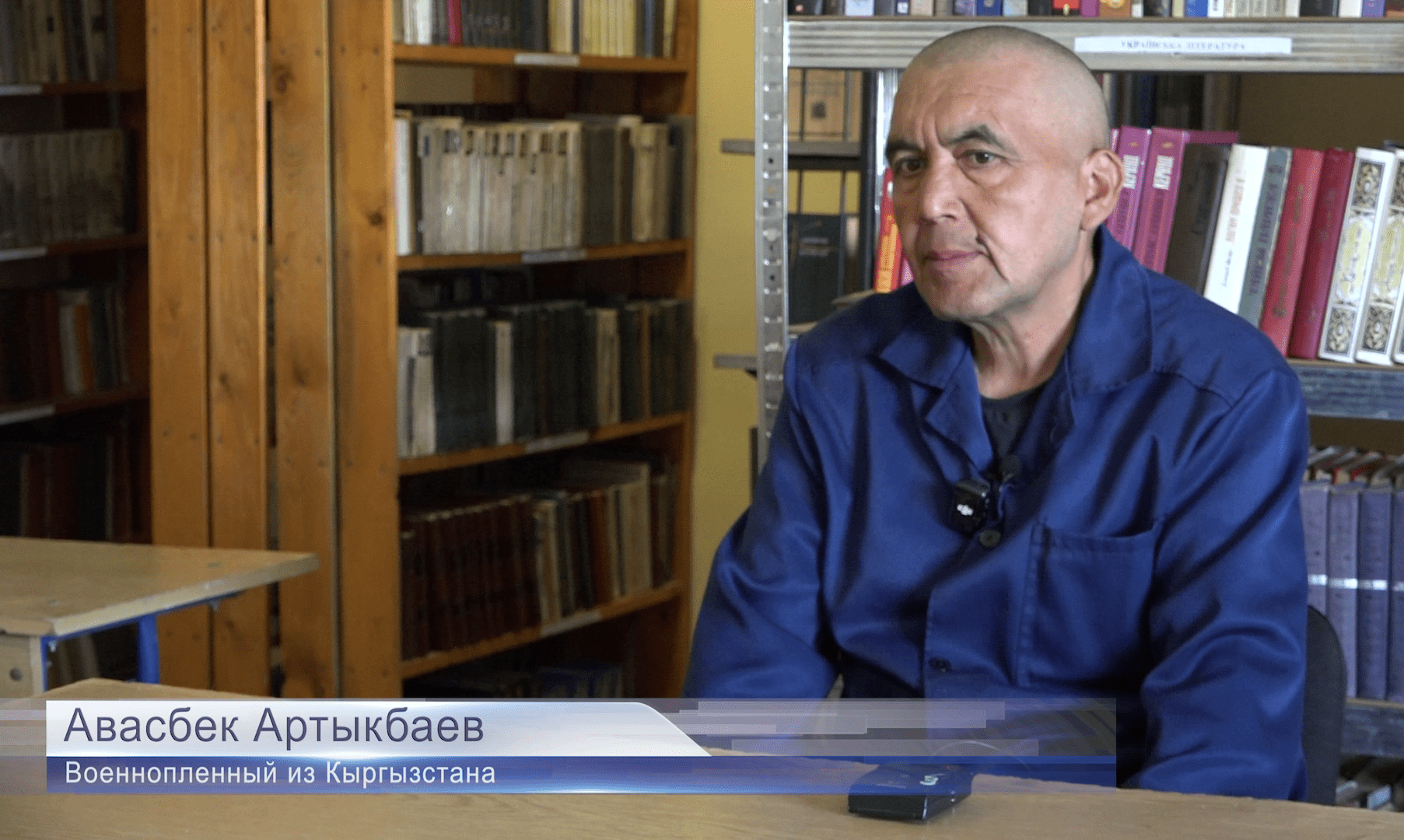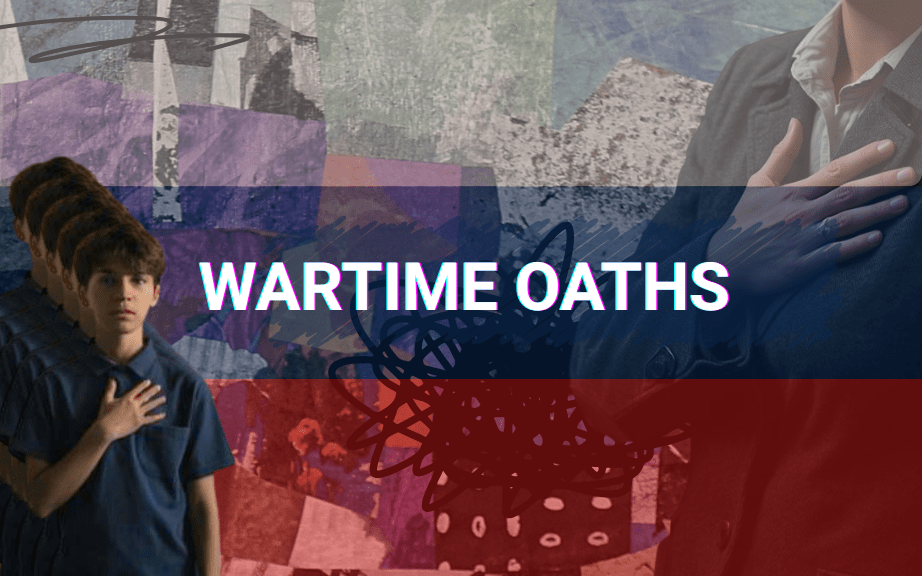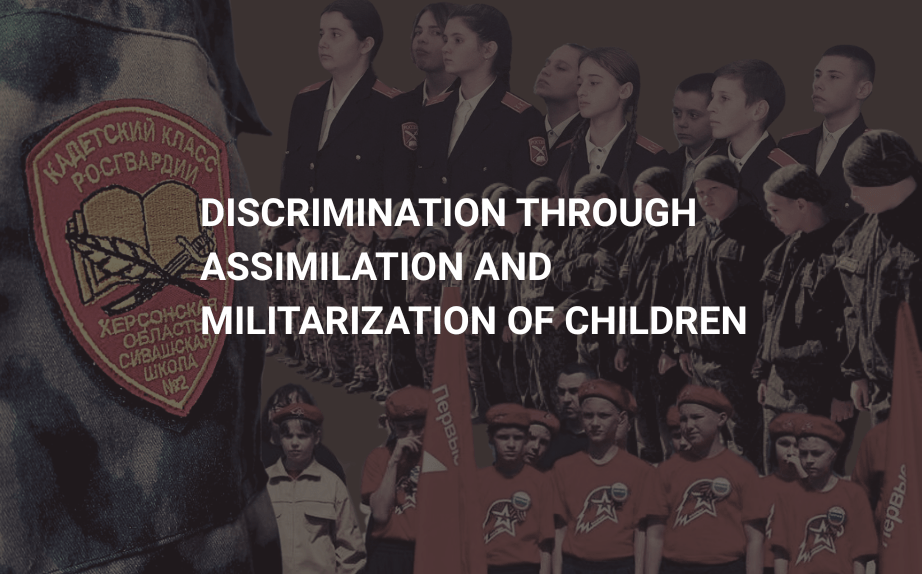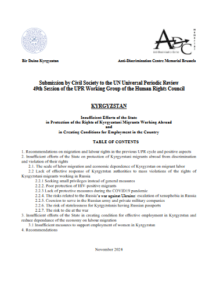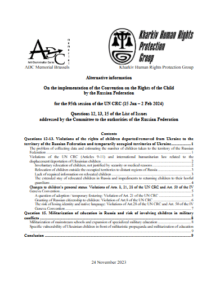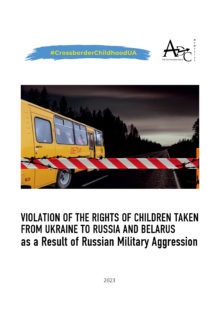In expelling foreign citizens for minor violations, the migration authorities are separating families and leaving children without parents, guardians, and breadwinners.
Imagine a driver exceeding the speed limit. Or a pedestrian crossing the street in the wrong place. And then, after several traffic violations, being fired, expelled to another country, and banned from returning—in a word, having the habitual course of their lives interrupted and being separated from their family and children. This is no fantasy. In fact, this is the fate of many foreign citizens deemed by the Department for Migration Affairs and then a court to be violators of migration rules for minor, insignificant violations like breaking traffic rules, making mistakes on documents, and missing deadlines for bureaucratic procedures. The authorities even behave this way with people who have been living in Russia since childhood, who are surrounded by friends and acquaintances, and who have started families. Russian citizens, who are only fined for minor violations, generally have no idea that police officers and courts treat foreigners differently, or that the fates of adults and children can be turned upside down by repressive court decisions.
In 2018, many foreign citizens banned from entering Russia for violating migration rules appealed to ADC Memorial for help. All the applicants had lived in Russia for a fairly long time and started families; they did not connect their futures with their countries of origin. The severe decisions of the migration police cancel out the interests not just of migrants themselves, but also of their families.
Achieving the right to family through court
One person who appealed for help was Gamlet A., a citizen of Armenia. His parents moved him from Armenia to Saint Petersburg in 2003, when he was 10 years old. Since then, A. has lived, studied, and worked in Russia; he has no family connections with Armenia. In 2014, he met a women—a Russian citizen—whom he later married. When a court issued a decision on A.’s expulsion, he and his wife already had a child. On March 23, 2018, the Department for Migration Affairs banned A. from entering Russia until December 30, 2020 for repeatedly breaking traffic rules, including violating the rules for transporting people (Article 12.23 of the Russian Code of Administrative Offenses), operating a vehicle with defects (Article 12.5), and proceeding against a signal (Article 12.12). Russian citizens are generally fined from 500 to 1,000 rubles for these violations. In A.’s case, however, the Department for Migration Affairs determined that these offenses were significant, numerous, and flagrant. Migration officials ignored A.’s marriage to an RF citizen and their shared child, deeming these circumstances “not unconditional grounds” for lifting the entry ban.
Meanwhile, the right to respect of private and family life is one of the most important and generally recognized human rights. It means that no one, including the state, can arbitrarily interfere in private life and inhibit a family’s free existence. This is especially true of cases involving the rights and interests of children, since separation from parents can have a negative impact on a child’s physical and mental health and development.
Russian law does not contain a wholesale ban on separating children from their expelled parents, but the Constitution does proclaim that motherhood, childhood, and the family are protected by the state. Beyond this, the practice of expelling people who have family members and minor children in their countries of residence is banned by the Convention on the Rights of the Child, which Russia ratified in 1990.
A. turned to ADC Memorial attorneys for help and appealed the migration service’s decision in court. On September 13, 2018, Saint Petersburg’s Smolinsk District Court issued a ruling in favor of A. In its review of his appeal, the court was guided by Article 8 of the Convention for the Protection of Human Rights and Fundamental Freedoms and the practice of the European Court of Human Rights, which has repeatedly noted that states must consider all relevant factors, including personal family situations, length of stay in the country, strength of family ties, and children’s interests when working to resolve the matter of the proportionality of interference in family life. The court cleared A. of any wrongdoing and stressed that expulsion and deprivation of the right to be in Russia for a period of three years would be a violation of the right to respect for private and family life.
Even though the migration service did not agree with the court’s decision and demanded a review, it was unable to provide one new reason for overturning the court decision and instead continued insisting that the sanctions were legal and justified.
On February 25, 2019, the higher Saint Petersburg City Court ruled that the migration service’s arguments were justified, but that its arguments ignored existing circumstances and the weight of its decision. The court also cited provisions of the Convention for the Protection of Human Rights and Fundamental Freedoms, noting that the decision to expel A. and ban his entry into Russia did not have any legitimate purpose. Thus, the city court upheld the ruling of the first instance court and protected A.’s right to respect for family and personal life.
Unexplained entry bans
The case of Irina B., a citizen of Moldova, also ended favorably. In February 2019, a court found that the revocation of her temporary residence permit and a 10-year ban on her entry into Russia were illegal. Like A., Irina came to Russia as a child. In 2002, when she was nine-years-old, her parents moved to Saint Petersburg, where she grew up, graduated from high school and an institute, married a Russian citizen, and had a child with him.
She only traveled to her home country once over this entire time. She did not have a residence permit for Moldova or any relatives there, except for her father, who had long been divorced from her mother. When she crossed the border, she was certain that she would be able to return to Russia without any problems, particularly because Russia’s migration service had issued her a temporary residence permit without any problem. Nevertheless, when she returned from Moldova, Irina learned that she had been banned from entering Russia for ten years because of her extended and uninterrupted stay in Russia. The migration service refused to explain how this ban could be allowed with her temporary residence permit, her registered marriage to a Russian citizen, and her minor son, who was also a Russian citizen. To appeal this repressive decision, Irina’s attorney appealed to a court, which lifted the entry ban on February 26, 2019 and obligated the migration service to return Irina’s temporary residence permit and accept her documents for a residence permit.
Courts are not doing anything revolutionary when they overturn incompetent decisions made by the migration service, but are merely implementing the recommendations of higher courts. For example, the Constitutional Court clarified that authorized bodies must avoid taking a formal approach to considering matters relating to entry bans. Russia’s Supreme Court holds the same position. In one of its judgments, it noted that administrative punishment in the form of expulsion from Russia is only possible if public interests and the foreign citizen’s interests are balanced fairly. In spite of these statements, however, many Russian courts still do not have a unified, qualitative approach to appealing migration service decisions. Many courts take the migration service’s side, satisfying themselves with the formal, surface arguments that run counter to the right to non-interference in private and family life. This happens especially frequently in relation to applicants who have families in Russia, but not children (courts are inclined not to consider adopted children as “children”).
“The court did not believe that these were my wife and my child”
The fate of the family of Rustam S., a citizen of Tajikistan who was banned from entering Russia because he did not have a car seat for his child or insurance, could have been especially tragic. In 2018, Rustam married a Russian citizen who had little education and was unemployed. They had a son, and Rustam’s wife was six-months pregnant during the trial.
Rustam was responsible for all of the family’s material need. Because he did not know the laws, he missed the deadline for leaving the country and the deadline for appealing the migration service’s decision, which greatly complicated the case for his attorneys. While he lived in Russia, Rustam, like all the other people mentioned in this article, did not commit any crimes. Minor administrative offences like breaking traffic rules could do no harm in comparison to what his family faced: an extended separation from their spouse and father, who was the family’s only breadwinner.
In spite of these circumstances, the missed deadline for appealing the decision played a negative role, and the court was decisively set against Rustam. The judges were also convinced that Rustam’s marriage was fictitious because his wife, who was extremely anxious, could not provide a coherent answer to any question posed to her during the session. On top of this, Rustam was not able to submit documents confirming his relationship to his son on time.
The court was expected to uphold the entry ban, but a representative of a human rights organization Rustam had asked for assistance appeared at one of the court sessions in Rustam’s defense. This representative confirmed that Rustam had submitted a written statement to have the decision revoked to the migration service. This testimony and the attorney’s arguments about Rustam’s extended residence in Russia, his family situation, and his law-abiding behavior helped achieve the revocation of the migration service’s initial decision and the restoration of Rustam’s rights.
Adopted children don’t count
The migration service and the courts do not consider the presence of adopted or foster children cared for by migrants to be sufficient grounds for not taking repressive decisions; in other words, they reject that notion that migrants have a family in these cases. One of these “childless” people who appealed to ADC Memorial for assistance was Tajik citizen Azamat S. Over the years prior to his case, he had been living legally in Saint Petersburg. He was preparing to file for a temporary residence permit and was living with a Russian citizen and helping her raise her three children from a previous marriage. In 2017, the migration service banned Azamat from entering Russia for a period of three years for running a red light and violating right of way at an intersection. He was supposed to leave Russia but did not, instead continuing to work. Three children were under his care, and he could not leave them.
To fight for his right to remain with his family, Azamat and his common-law wife officially registered their marriage, but this was not enough. Even though the first instance court ruled in his favor, the migration service was able to win over the Saint Petersburg City Court. The deciding factor for the court was the fact that the couple did not share any children and that Rustam did not have any formal obligations to raise his wife’s children.
Separation instead of care
Sometimes state bodies and courts do not even attempt to meet families with children requiring special care and parental attention halfway. In December 2017, Akmala D., an Uzbek citizen, was banned from entering Russia. The migration service ignored both his marriage to a Russian citizen, the fact that he was raising her two children from her first marriage, and the fact that one of the children was autistic. Akmala was prosecuted for having falsely registered at his place of stay, which he did to obtain a work license. His only goal was to find work to feed his family.
To work legally, the law requires migrants to register at their place of residence. Until recently, any employer could arrange for a registration at the organization’s legal address. Beginning in 2018, however, migrants could only register with the migration service using the address where they were residing. The new rules complicated life for employers and migrants and encouraged intermediary companies that prepared fake registrations. Most apartment owners who lease their premises to migrants refuse to register these migrants. Fake registrations make it possible to apply for licenses, but if police bodies learn that the address listed in the document does not match the address of actual residence, they ban the migrant from entering Russia.
In 2018, Akmala’s attorney filed an appeal to the migration service’s decision with the support of ADC Memorial. The defense insisted that Akmala’s family situation needed to be taken into account and that the entry ban was incommensurate with the minor violation he had committed. The attorney explained that the autistic child considered Akmala to be his father and that his illness was incompatible with long-distance travel. Thus, an entry ban would mean that a child would be separated from his adoptive parent. The migration service and the court were notified of these nuances, but the court did not rule in the family’s favor: it did not view the relationship between Akmala and the children as a close personal connection and refused to recognize the danger of separation, citing the fact that “the case file does not contain any evidence that the family cannot live in D.’s country of citizenship.” In other words, the court believed that an entry ban would not destroy D.’s family: according to the court, this family, which includes a disabled child with Russian citizenship, could move to the native country of the adoptive father.
Officially, the “blood” approach of the migration service and the court to an understanding of a family contravenes the norms of the Convention on Human Rights. This convention’s understanding of marriage and blood ties is not restricted, but includes other types of “family” relationships where a couple lives together but is not married. Adverse court decisions in these cases are not fair even from the viewpoint of Russia’s Constitutional Court, which believes that the accused’s liability should be weighed against the severity, size, and nature of the damages. The victims of these repressive decisions are not just the spouses, but the children as well. In Akmala’s case, one of the chief victims was a disabled child who was especially attached to Akmala and considered him his father; in fact, autistic people take changes to their usual situation and social group particularly hard. Considering this circumstance and the fact that Akmala committed a minor offense, the court could have chosen a milder sanction and allowed Akmala to remain with his family; however, the right of Akmala and his family members to respect for private and family life was ignored.
Positive rulings are still in the minority
Judges have started to pay attention to the importance of the integrity and inviolability of the family and are now more frequently requesting state bodies to take a special approach and responsibility when adopting decisions that could wreak havoc on the lives of people, including children. In most cases, however, the family situation of foreign citizens has little impact on decisions of the migration service, and few migrants are able to appeal these decisions.
We are firmly convinced that migrants whose families and children live in Russia cannot be deported and banned from entering the country for minor offenses.









 Feedback
Feedback 